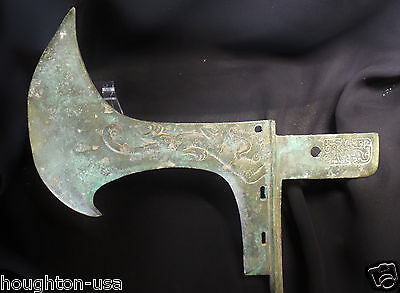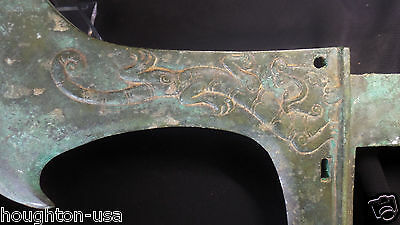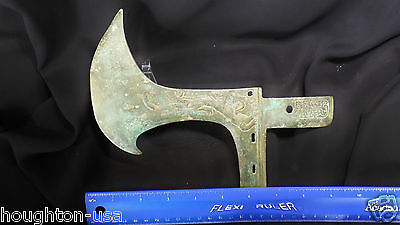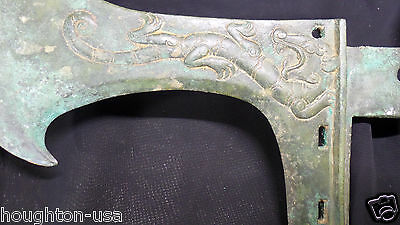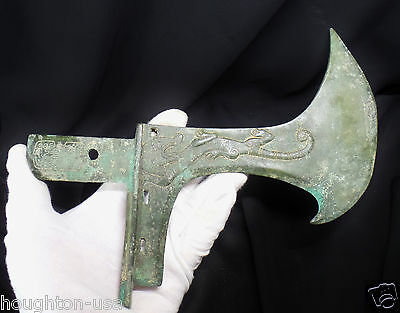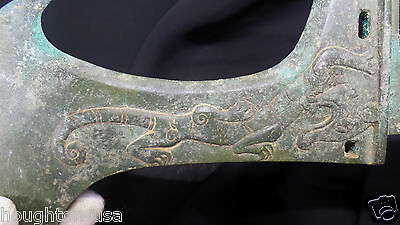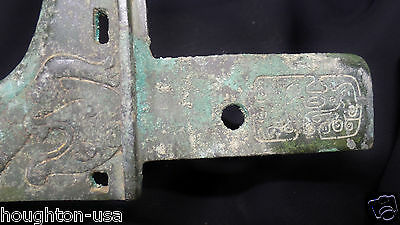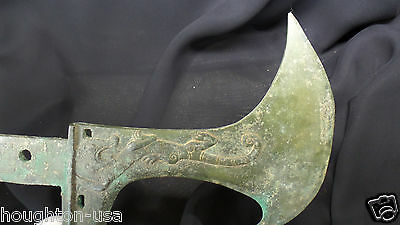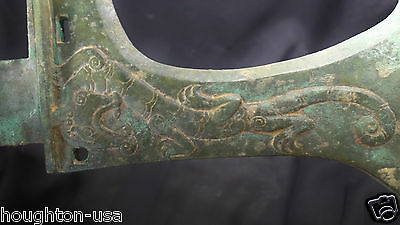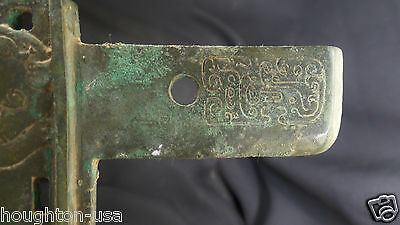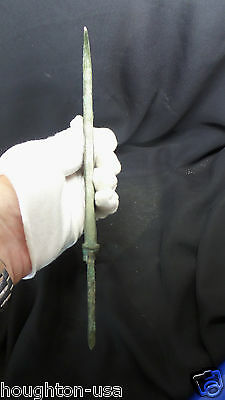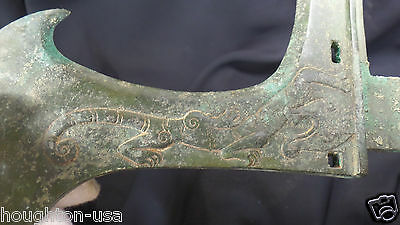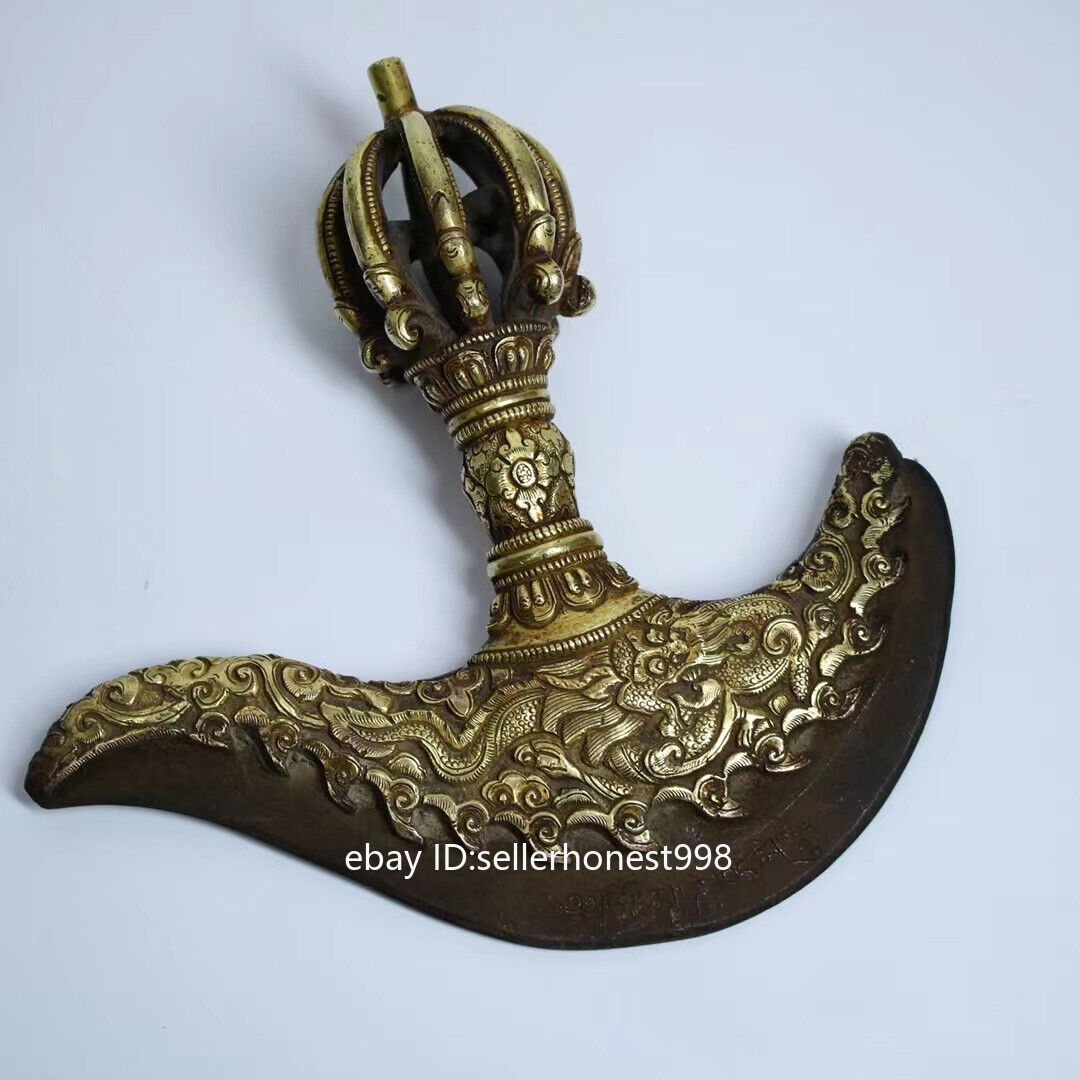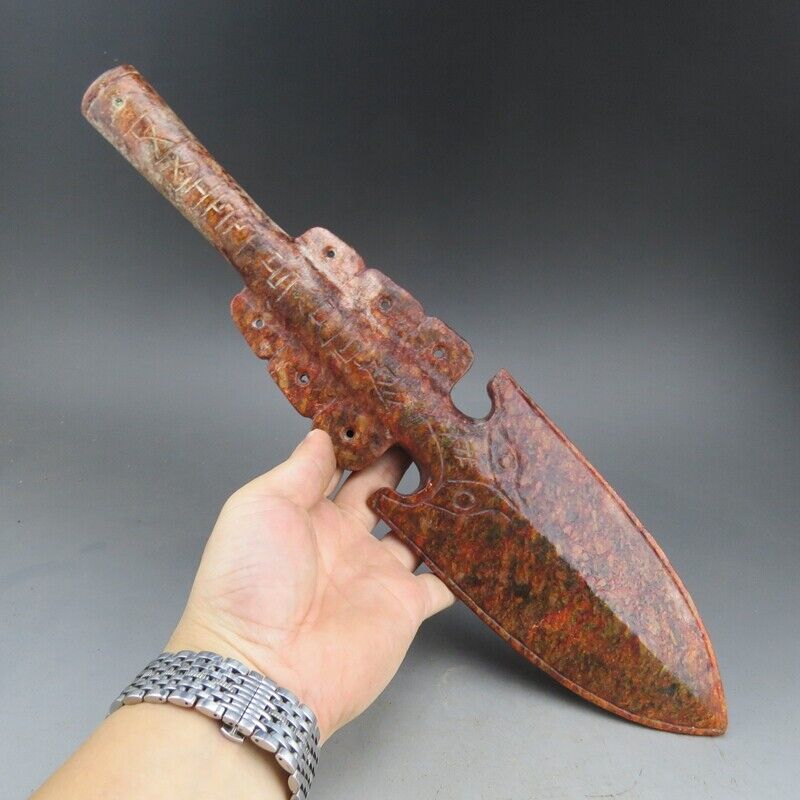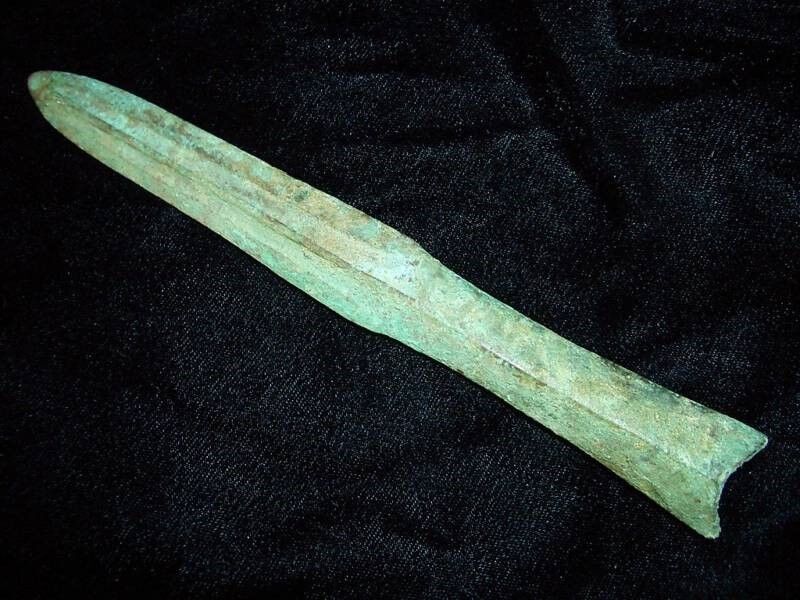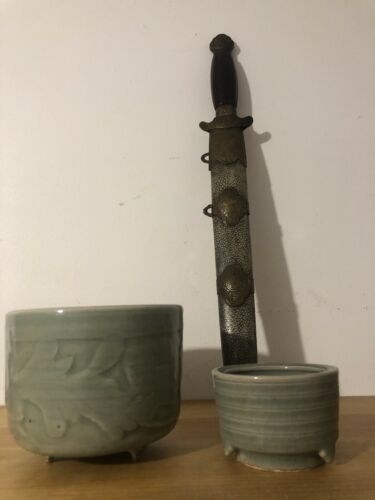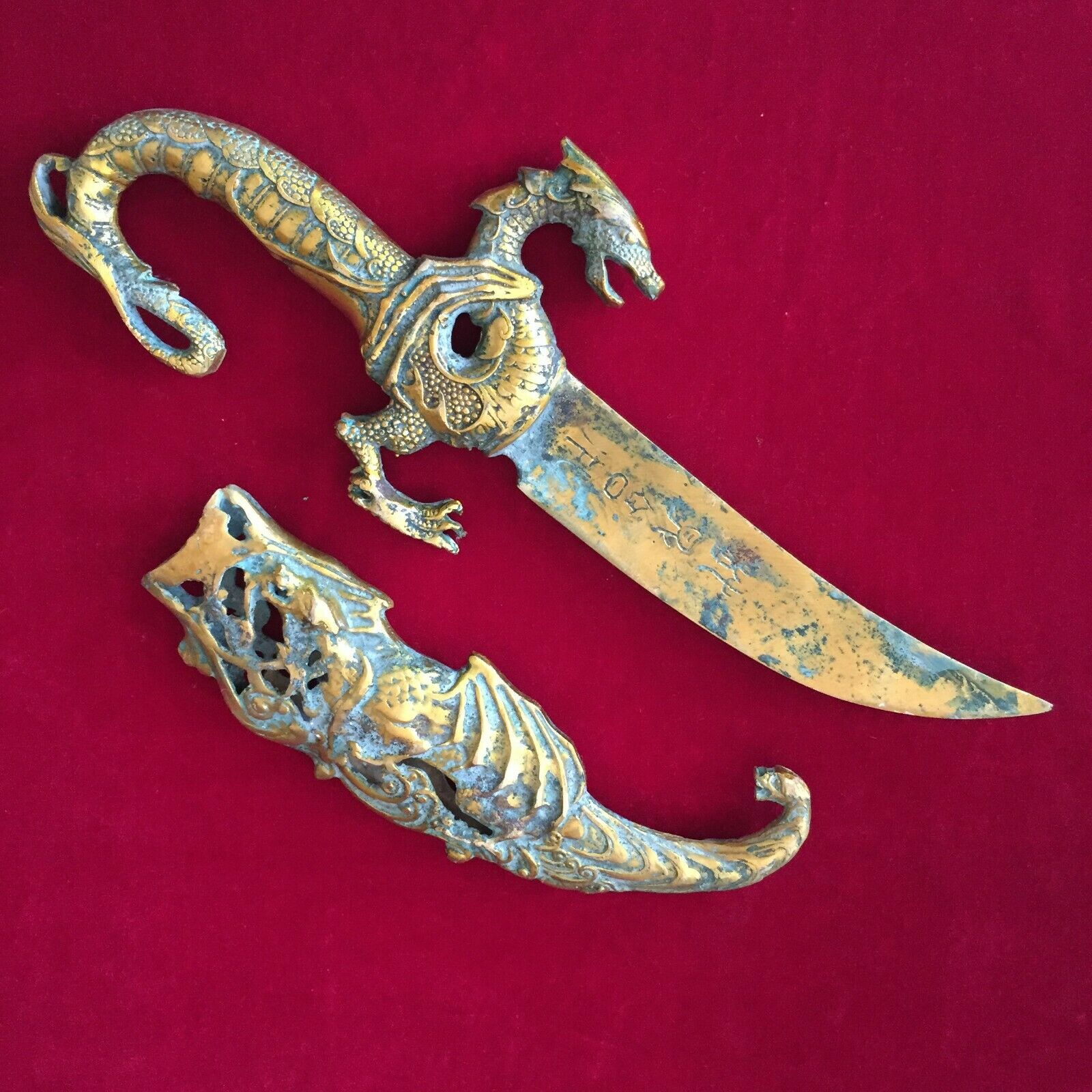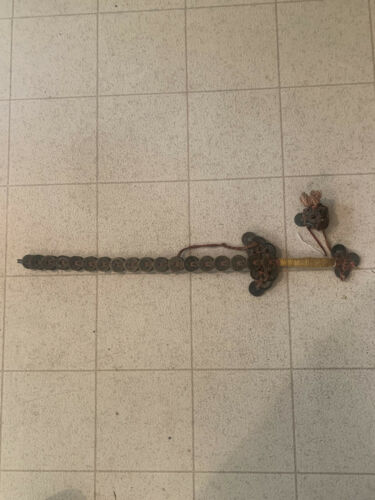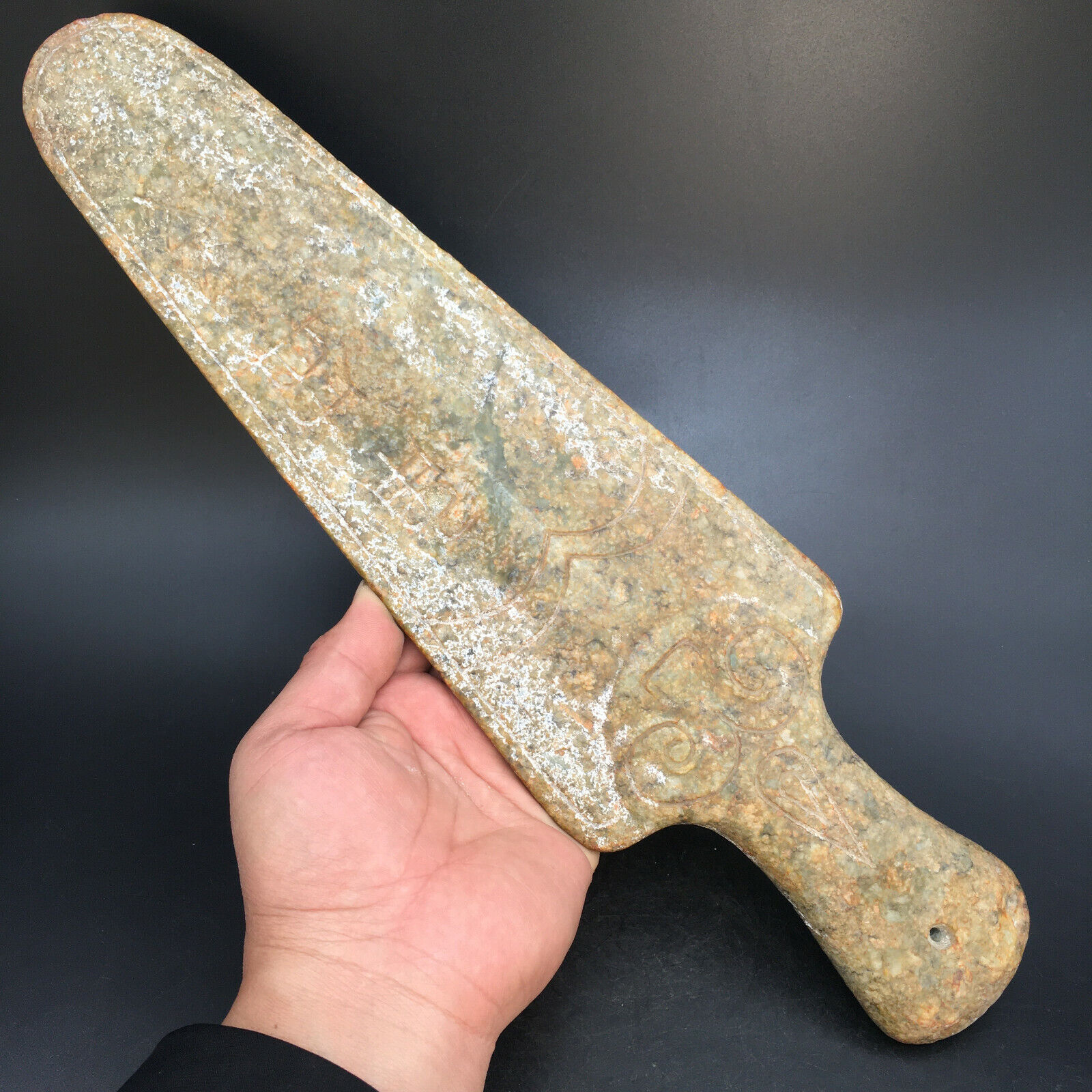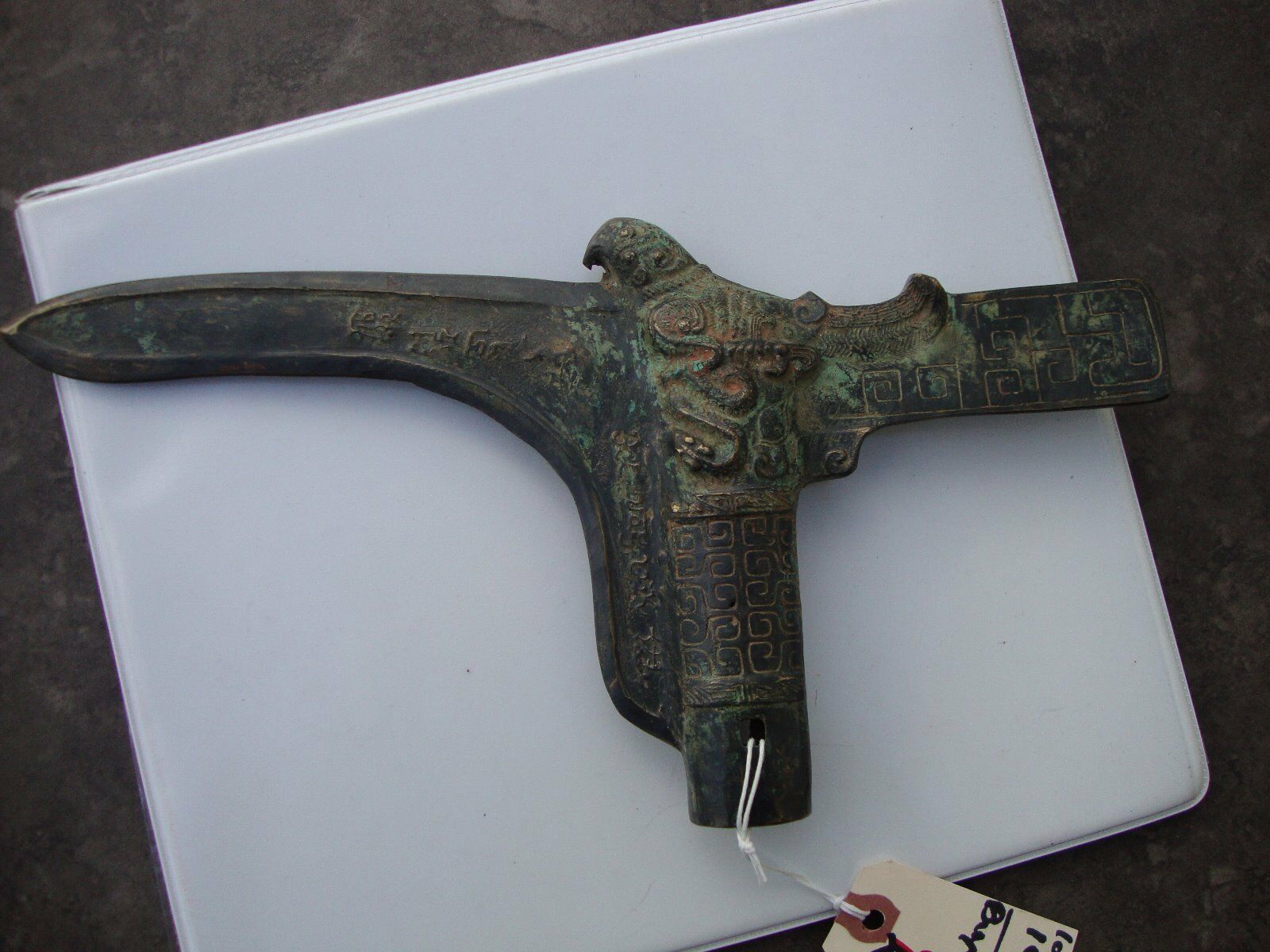-40%
Ancient Chinese Ritual Bronze Tiger Halberd "Ji" Axe. W.Zhou Dynasty 1100-770 BC
$ 1188
- Description
- Size Guide
Description
Ancient CivilizationsAntiques, Artifacts & Fine Collectibles
Ancient Chinese Ritual Bronze Tiger Halberd Axe (
Chinese:
戟
Ji
)
A Sacrifice to the Gods to Honor a Military General
c. Western Zhou Dynasty
1027 BC—221 BC
Item:
Bronze Western Zhou Halberd (Chinese:
戟
Ji
)
Material:
Cast Bronze {copper & tin alloy}
Size:
9"
(23 cm) high x 9" (23 cm) wide x .30" (7.6 mm) thick
Weight:
1.32 lb. (600 gr.)
Origin:
China, Henan Province
Est. Age:
Western Zhou Dynasty (1100 BC—770 BC)
Condition: Museum quality, “as found” condition with light bronze oxidation of green malachite and some earthen deposits.
Providence:
This bronze halberd was purchased at auction in Hong Kong.
It reportedly was recovered by a farmer during the 1950s.
It has been in a private collection in LouYangshi, Henan, China.
Based upon comparisons made with known ancient Chinese halberds (Chinese:
戟
Ji
), bronze blades with this configuration of blades and with the bold Tiger motif suggest that this lovely
ji
dates to the Zhou period, specifically the Western Zhou period that dates from 1122 BC—770 BC, as
the Tiger motif was a popular in cast bronze during this time period.
The Tiger was also the totem animal for the powerful Ba state that completed with the Han and the Chu during the much of the first millennium in China's eastern Sichuan province. Lin Jun, the founder of the dominant Ba tribe, is said to have turned into a white tiger--an animal thought to watch over weaponry and warfare--after his death. The Ba worshipped the tiger as a totem throughout their history and tigers are depicted as part of many traditional Ba artifacts. {"People of the White Tiger" by Daniel Weiss,
Archaeology
, Nov.-Dec. 2018, pgs. 37-39}
DETAILS
This bronze Ji measures about 9” x 9” and weighs 1.32 lbs.
It was cast with a crouching Tiger in low relief on both sides of the blade.
It has four holes cast into the base of blade that would have been used to securely lash the
Ji
to a long pole arm/spear of wood or bamboo.
There also appears to be two crouching beasts cast into the tang of the blade.
I can see no inscriptions on the
Ji
that would dedicate it to a particular person or family.
Bronze halberds were made not only for warriors to fight battles, but to honor royal ancestors—in this case, I believe a military officer. As early as the Shang dynasty, beautifully decorated bronze vessels for food and wine as well as ritual bronze weapons were placed in the tombs of the deceased to invoke blessings on the living and to provide the deceased with honor, blessings, and protection from evil spirits as he/she journeyed to the afterlife.
This bronze halberd was a hybrid type of
ji
that could be used as an axe, pointed spear, curved crescent blade, or has a hook to pull cavalry off their horses or shields from army warriors.
This
ji
would likely have been hafted to a very long pole-arm that are thought to have been between 1.8—2.7 meters long, although one exceptional
ji
was mounted on a pole-arm that was over 4 meters (12 feet long).
Many excavated dagger-axes are ceremonial weapons found in the tombs of aristocrats. These examples are often found within the coffins themselves, possibly meant to serve as emblems of authority and power, or in some other ritualistic capacity. Sometimes they are found in a pit dug beneath a coffin, with a victim who was sacrificed to guard the tomb, where they presumably are intended to keep the spirit-guard armed.
The Halberd (
Ji
) in Ancient China
The Ancient Chinese halberd or “
Ji
” was a cross between a spear and an axe. It was commonly used by infantry but also by cavalry and charioteers. There were many different ways to use a halberd: you could drive the point straight into someone, slice them with the axe blade, hit them with the shaft then hook them in the gap between the axe blade and shaft. You could even slap someone off their horse with the flat side of the blade.
The
ji
was initially a hybrid between a spear and a dagger-axe. It was a relatively common infantry weapon in Ancient China, and was also used by cavalry and charioteers.
They were effectively used in for multiple means of attack: the side blade or blades, the spear tip, plus often a rear counterweight that could be used to strike the opponent. The way the side blades were fixed to the shaft differs, but usually there were empty spaces between the pole and the side blade. The wielder could strike with the shaft, with the option of then pulling the weapon back to hook with a side blade; or he could slap his opponent with the flat side of the blade to knock him off his horse.
CONDITION
This bronze Ji
is lightly encrusted with earthen deposits, as well as authentic red and blue-green oxidation of the bronze that was buried for millennia in damp soil that was rich in cuprite, azurite, and malachite.
It is in “as found” condition and has been in a private collection in Hong Kong for at least 50 years.
Undocumented reports suggest it was found by farmers in 1950s and has been in private collections in
China
since that time.
Museums and modern archaeological studies usually use the general term “copper alloy” instead of just the term “bronze” to describe these ancient treasures, as many other elements (such as tin, lead, zinc, iron, and even arsenic) were added to the copper to form different strengths of types of bronze items.
Ancient bronze artifacts such as this censer vessel are probably about 80% copper and 20% tin, while modern bronze is closer to 88% copper and 12% tin.
It has a wonderful old, patina that is absolutely fabulous: areas of a blue-green patina from the azurite and malachite in the surrounding soil. This combination of colors forms a fantastic patina that is typical of bronze that has been buried for over 3,000 years.
Close examination with a microscope under natural and black light reveal it to be 100% authentic and cast by hand in a sand mold.
One interesting property of bronze is that once it has oxidized superficially, a copper oxide layer is formed on the surface and essentially protects the object from further damaging corrosion.
This protective layer turns in another compound, called copper carbonate for you scientists out there, which protects most bronze pieces from further corrosion.
I have carefully examined this item under magnification and it shows authentic and original signs of weathering and ground contact that help to further authenticate it as an ancient piece.
It shows minor oxidation and is in very good condition.
I
Guarantee
this bronze halberd is authentic or your money back!
You will not be disappointed!
It is a museum quality, ancient Chinese work of art.
It is a wonderful piece and would look great displayed next to your other fine ancient Chinese jade and bronze pieces!
REFERENCES
Museum of Chinese History, Beijing
The Ancestral Landscape
, David N. Knightley, 2000
The Great Bronze Age of China
, edited by Wen Fong, MET, 1980
British Museum,
Jessica Rawson
Smithsonian Museum, Sackler & Freer Gallery, WDC
MET, New York
"
People of the White Tiger" by Daniel Weiss,
Archaeology
, Nov.-Dec. 2018, pgs. 37-39
ESTIMATED AUCTION VALUE & SAVINGS
This ancient Bronze Ji has an appraisal estimate of US ,000--,000.
It will come with a Certificate of Authenticity (COA) from Ancient Civilizations.
Please ask any questions you may have before you bid! Thanks for Looking!
Please review all 12 photos as they are part of the description.
Per e-Bay's rules, PayPal only please!
THANKS!
FREE SHIPPING cost includes Insurance and is accurate for all 50 United States.
International buyers are responsible for all shipping costs, full insurance, and any import taxes or duties.
Sorry, but Washington State residents are required to pay the state sales tax. Thanks...
